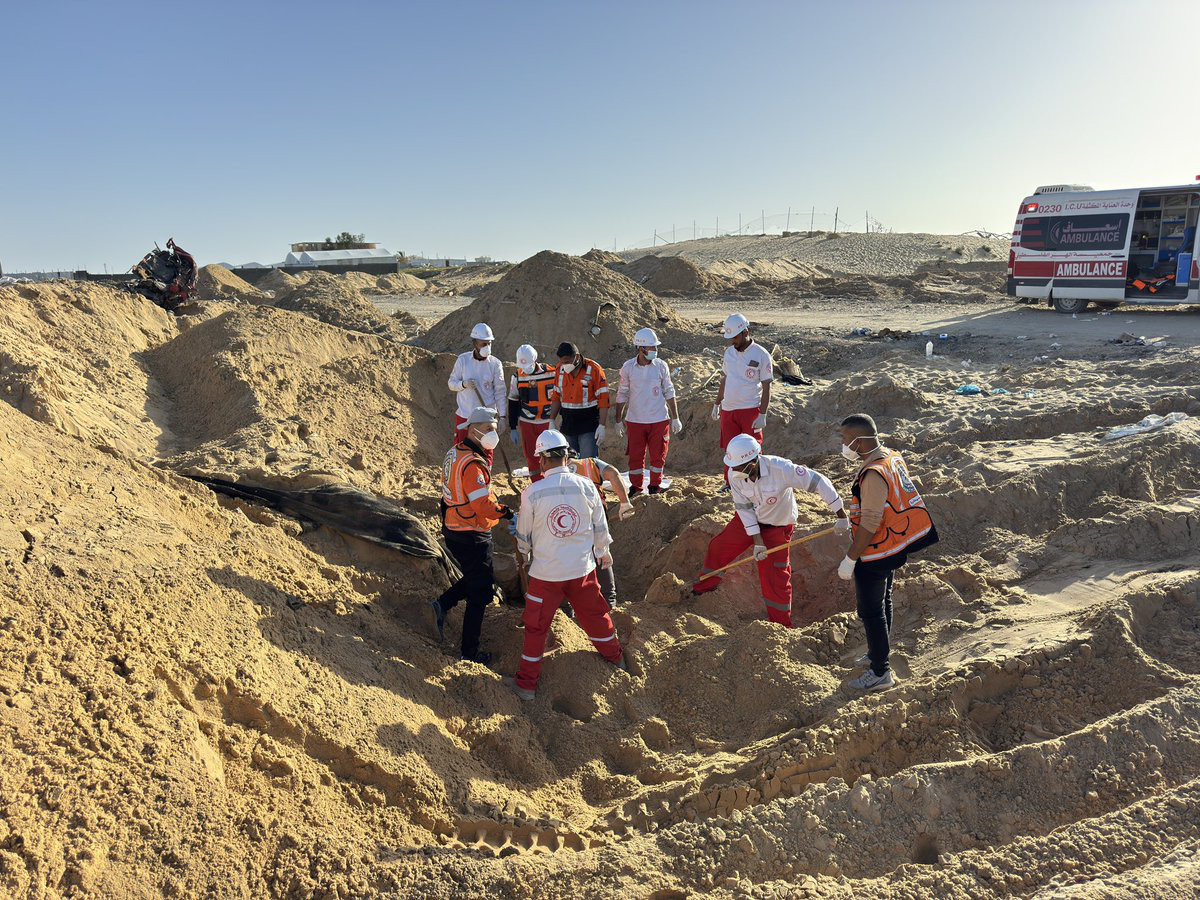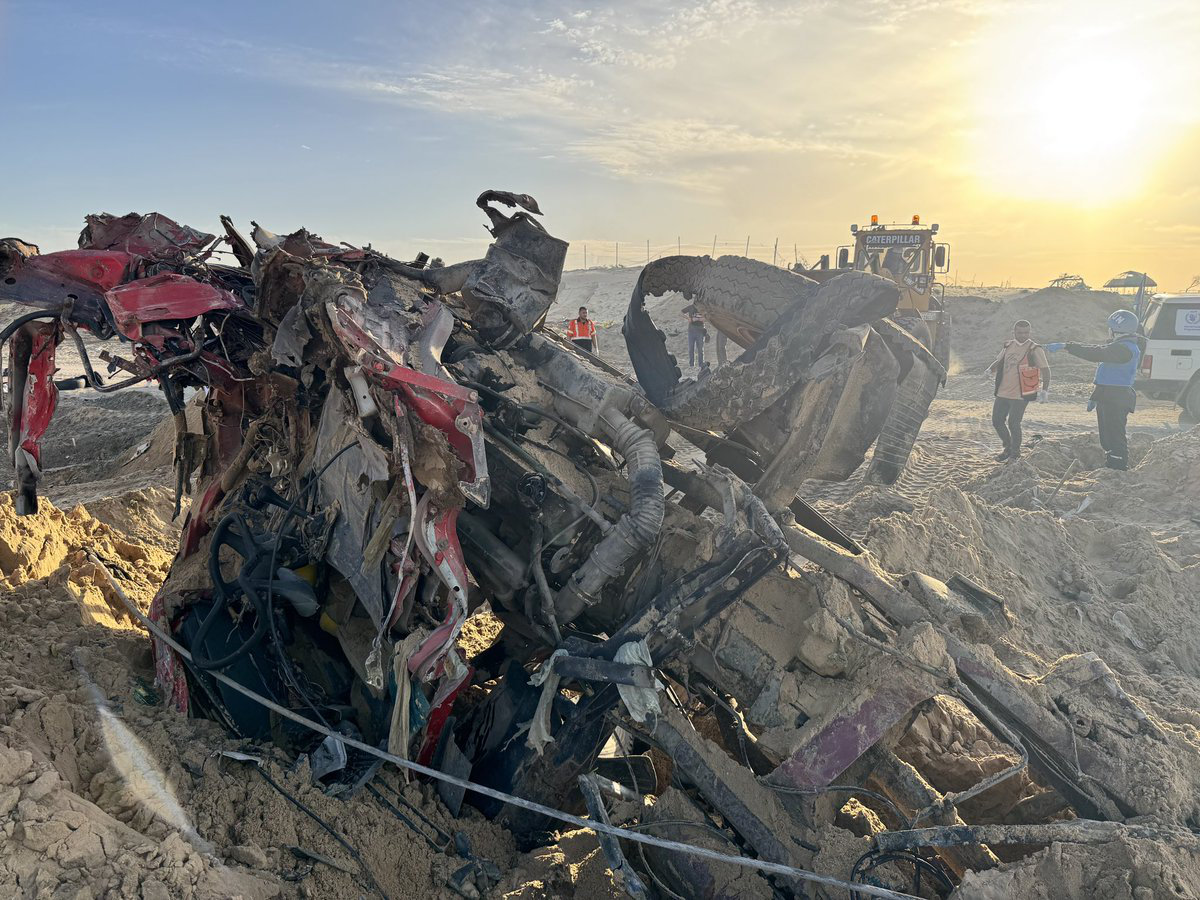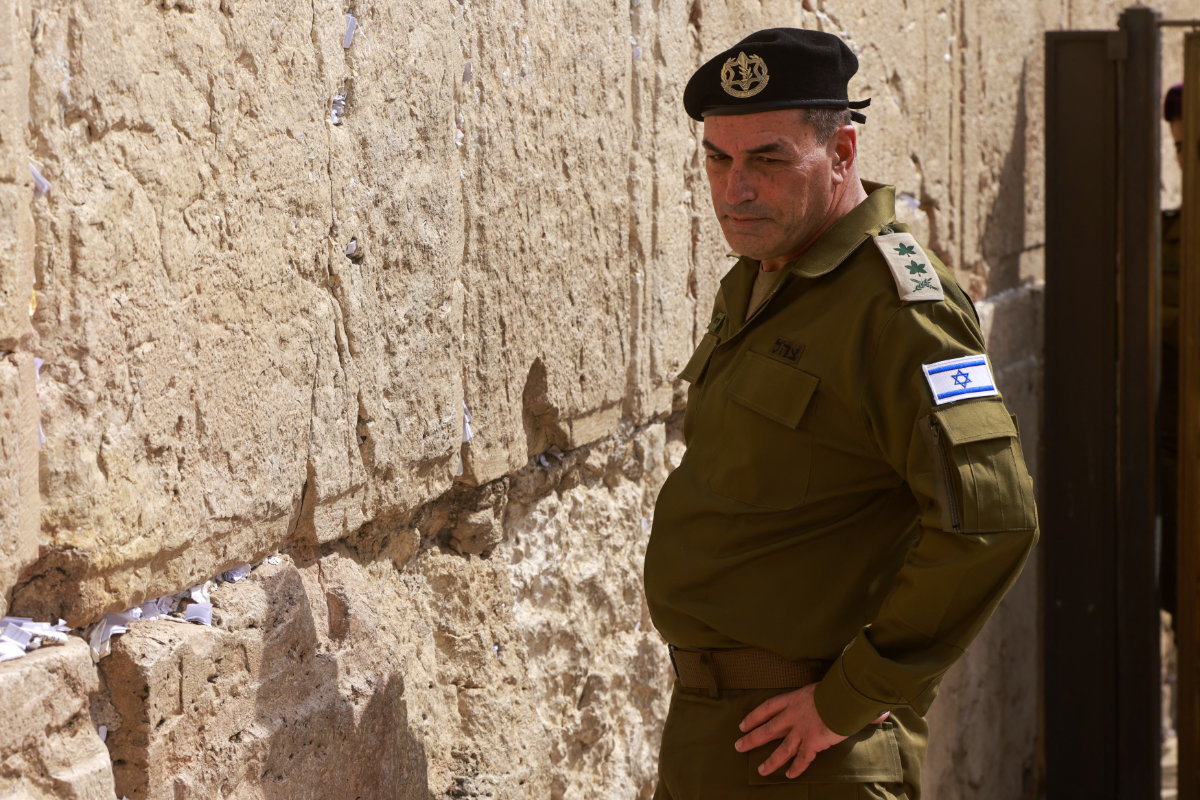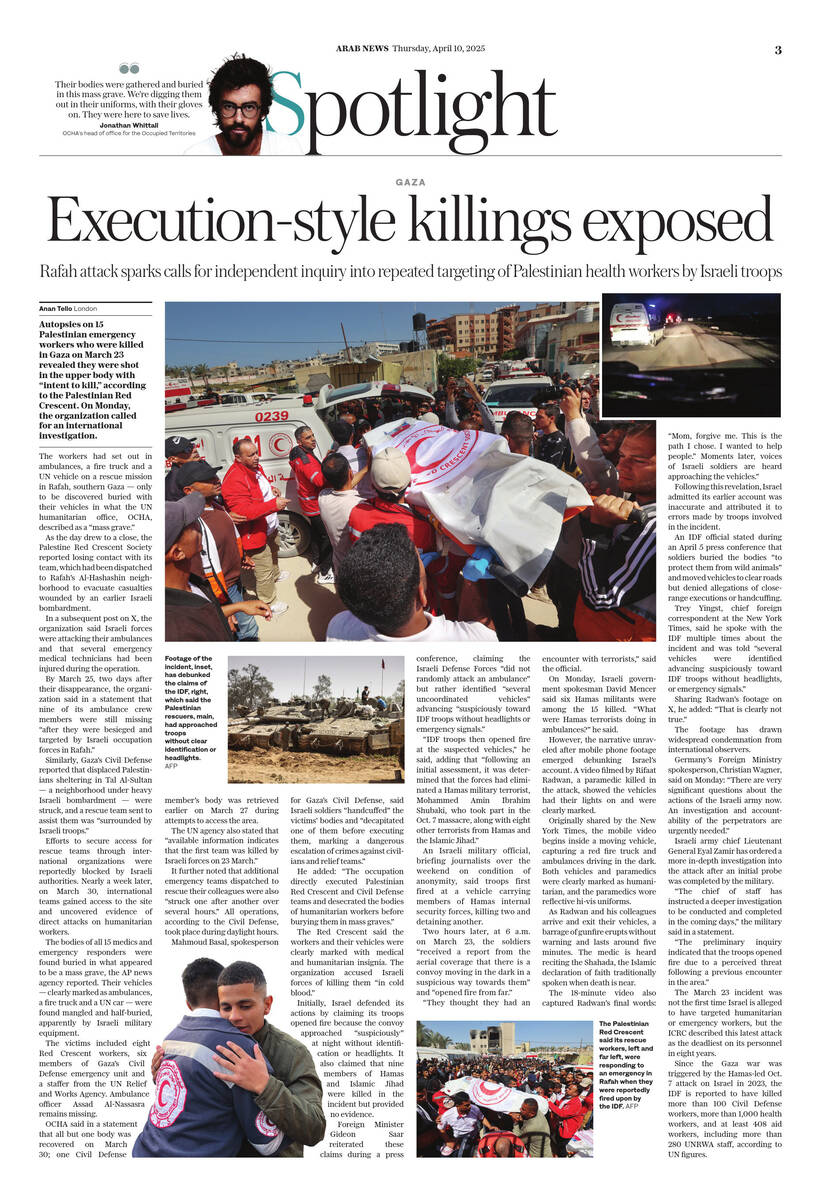BEIRUT: Powerful new explosions rocked Beirut’s southern suburbs late Saturday as Israel expanded its bombardment in Lebanon, striking a Palestinian refugee camp deep in the north for the first time as it targeted both Hezbollah and Hamas fighters.
A series of strong explosions were reported near midnight after Israel’s military called on residents to evacuate areas in Beirut’s Haret Hreik and Choueifat neighborhoods. Residents were also told to evacuate buildings in the areas of Al-Kafaat, Al-Laylaki, and the Madi neighborhood.
Blasts illuminated the skyline of the densely populated southern suburbs, where Hezbollah has a strong presence. They followed a day of sporadic strikes and the nearly continuous buzz of reconnaissance drones.
The strong explosions began near midnight and continued into Sunday after Israel’s military urged residents to evacuate areas in Dahiyeh, the predominantly Shiite collection of suburbs on Beirut’s southern edge.
A building near a road leading to the Rarik Hariri International Airport was among those hit, triggering violent explosions followed by a massive fire. Social media reports claimed that one of the strikes hit an oxygen tank storage facility, but this was later denied by the owner of the company Khaled Kaddouha.
A building known to house studios of Hezbollah’s Al-Manar TV channel was also targeted in the strikes.
Thousands of people in Lebanon, including Palestinian refugees from the Sabra and Shatila camps, continued to flee the widening conflict in the region, while rallies were held around the world marking the approaching anniversary of the start of the war in Gaza.
A video clip posted by LBCI Lebanon News on the X platform showed chaos and confusion along the streets as people rushed for their safety.
Israel’s military confirmed it was striking targets near Beirut and said about 30 projectiles had crossed from Lebanon into Israeli territory, with some intercepted.
Shortly thereafter, Hezbollah claimed in a statement that it successfully targeted a group of Israeli soldiers near the Manara settlement in northern Israel “with a large rocket salvo, hitting them accurately.”
On Saturday, Israel’s attack on the northern Beddawi camp killed an official with Hamas’ military wing along with his wife and two young daughters, the Palestinian militant group said. Hamas later said another military wing member was killed in Israeli strikes in Lebanon’s eastern Bekaa Valley. The aftermath showed smashed buildings, scattered bricks and stairways to nowhere.
Israel has killed several Hamas officials in Lebanon since the Israel-Hamas war began , in addition to most of the top leadership of the Lebanon-based Hezbollah as fighting has sharply escalated.
At least 1,400 Lebanese, including civilians, medics and Hezbollah fighters, have been killed and 1.2 million driven from their homes in less than two weeks. Israel says it aims to drive the militant group away from shared borders so displaced Israelis can return to their homes.
Iranian-backed Hezbollah, the strongest armed force in Lebanon, began firing rockets into Israel almost immediately after Hamas’ Oct. 7 attack, calling it a show of support for the Palestinians. Hezbollah and Israel’s military have traded fire almost daily.
Last week, Israel launched what it called a limited ground operation into southern Lebanon after a series of attacks killed longtime Hezbollah leader Hassan Nasrallah and others. The fighting is the worst since Israel and Hezbollah fought a brief war in 2006. Nine Israeli soldiers have been killed in the ground clashes that Israel says have killed 440 Hezbollah fighters.
Iran’s foreign minister, Abbas Araghchi, told reporters in Damascus that “we are trying to reach a ceasefire in Gaza and in Lebanon.” The minister said the unnamed countries putting forward initiatives include regional states and some outside the Middle East.
Araghchi spoke a day after the supreme leader of Iran praised its recent missile strikes on Israel and said it was ready to do it again if necessary.
On Saturday evening, Israeli Prime Minister Benjamin Netanyahu said “Israel has the duty and the right to defend itself and respond to these attacks, and it will do so.” On Lebanon, he said ”we are not done yet.”
Fleeing Lebanon on foot
Israel’s military earlier Saturday said about 90 projectiles were fired from Lebanon into Israeli territory. Most were intercepted, but several fell in the northern Arab town of Deir Al-Asad, where police said three people were lightly injured.
At least six people in Lebanon were killed in more than a dozen Israeli airstrikes overnight and into Saturday, according to the Lebanese state-run National News Agency.

Nearly 375,000 people have fled from Lebanon into Syria in less than two weeks, according to a Lebanese government committee.
Associated Press journalists saw hundreds continuing to cross the Masnaa Border Crossing on foot, crunching over the rubble after Israeli airstrikes left huge craters in the road leading to it on Thursday. Much of Hezbollah’s weaponry is believed to come from Iran through Syria.
“We were on the road for two days,” said Issa Hilal, one of many Syrian refugees in Lebanon who are now heading back. “The roads were very crowded … it was very difficult. We almost died getting here.” Some children whimpered or cried.
Other displaced families now shelter alongside Beirut’s famous seaside Corniche, their wind-flapped tents just steps from luxury homes. “We don’t care if we die, but we don’t want to die at the hands of Netanyahu,” said Om Ali Mcheik.
The Israeli military said special forces were carrying out ground raids against Hezbollah infrastructure in southern Lebanon. It said troops dismantled tunnel shafts that Hezbollah used to approach the Israeli border.
More evacuation orders in Gaza
Almost 42,000 Palestinians have been killed in Gaza during the war, according to the Health Ministry there, which does not differentiate between civilian and militant deaths. Almost 90 percent of Gaza’s residents are displaced, amid widespread destruction.
Palestinian medical officials said Israeli strikes in northern and central Gaza on Saturday killed at least nine people. One in the northern town of Beit Hanoun killed at least five, including two children, according to Gaza’s Health Ministry. Another hit a house in the Nuseirat refugee camp, killing at least four, Awda hospital said.
Israel’s military did not have any immediate comment but has long accused Hamas of operating from within civilian areas.
An Israeli airstrike killed two children in Gaza City’s Zaytoun neighborhood, according to the civil defense first responders’ group that operates under the Hamas-run government.
Israel’s military warned Palestinians to evacuate along the strategic Netzarim corridor in central Gaza that was at the heart of obstacles to a ceasefire deal. The military told people in parts of the Nuseirat and Bureij refugee camps to evacuate to Muwasi, a coastal area it has designated a humanitarian zone.
It’s unclear how many Palestinians are in those areas. Israeli forces have often returned to areas in Gaza to target Hamas fighters as they regroup.





































